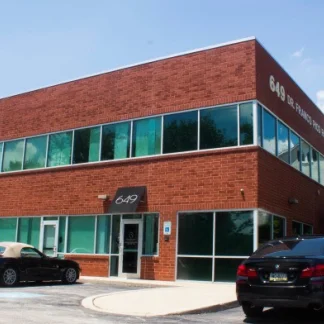New Path Recovery
New Path Recovery is a private rehab located in Norristown, Pennsylvania. New Pa...
BrainSpark Health provides affordable and effective holistic treatment and cares for patients who struggle with substance abuse. BrainSpark Health is located in Plymouth Meeting, Pennsylvania.
Help to change the lives of individuals and families that have been torn apart by this chemical dependency by combine our mutual goals to make a difference in this crisis.
They offer Nicotinamide Adenine Dinucleotide (NAD) that is a metabolic co-enzyme and is charged with the important job of structuring, repairing, and remodeling every cell in the body. This therapy requires one infusion per day for a period of ten days. This process, known as neuroadaptation, is directly responsible for addiction-related brain damage and depletion of neurotransmitters. NAD therapy is said to replenish the drained enzymes and target brain restoration.
Contact us for more information: (866) 836-5702

Connect with BrainSpark Health by calling their admissions team directly.
(866) 836-5702 Website Get DirectionsCognitive Behavioral Therapy (CBT) is a therapy modality that focuses on the relationship between one's thoughts, feelings, and behaviors. It is used to establish and allow for healthy responses to thoughts and feelings (instead of unhealthy responses, like using drugs or alcohol). CBT has been proven effective for recovering addicts of all kinds, and is used to strengthen a patient's own self-awareness and ability to self-regulate. CBT allows individuals to monitor their own emotional state, become more adept at communicating with others, and manage stress without needing to engage in substance abuse.
In individual therapy, a patient meets one-on-one with a trained psychologist or counselor. Therapy is a pivotal part of effective substance abuse treatment, as it often covers root causes of addiction, including challenges faced by the patient in their social, family, and work/school life.
In individual therapy, a patient meets one-on-one with a trained psychologist or counselor. Therapy is a pivotal part of effective substance abuse treatment, as it often covers root causes of addiction, including challenges faced by the patient in their social, family, and work/school life.
New Path Recovery is a private rehab located in Norristown, Pennsylvania. New Pa...
Silver Springs – Martin Luther School is a private rehab located in Plymouth Mee...
Whitemarsh House is a private rehab located in Flourtown, Pennsylvania. Whitemar...
Central Montgomery – Mental Health is a private rehab located in Norristown, Pen...